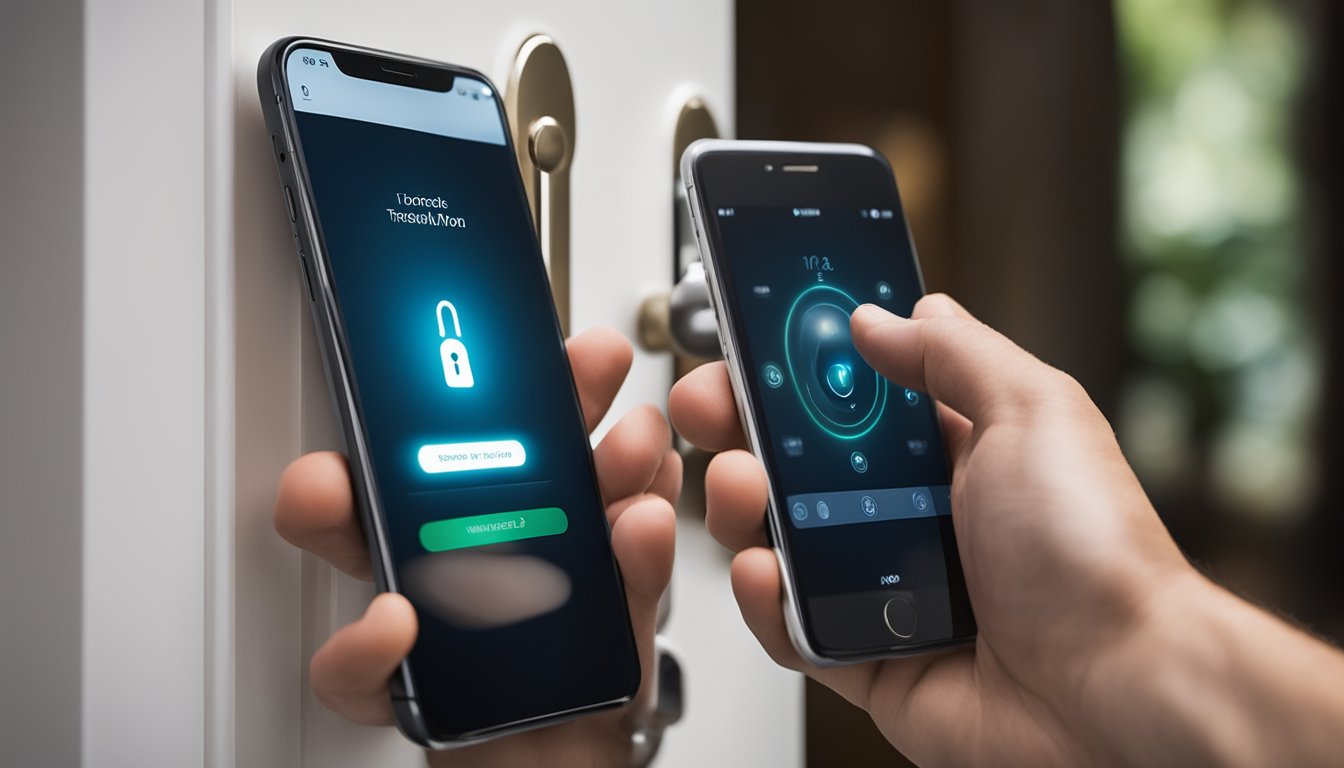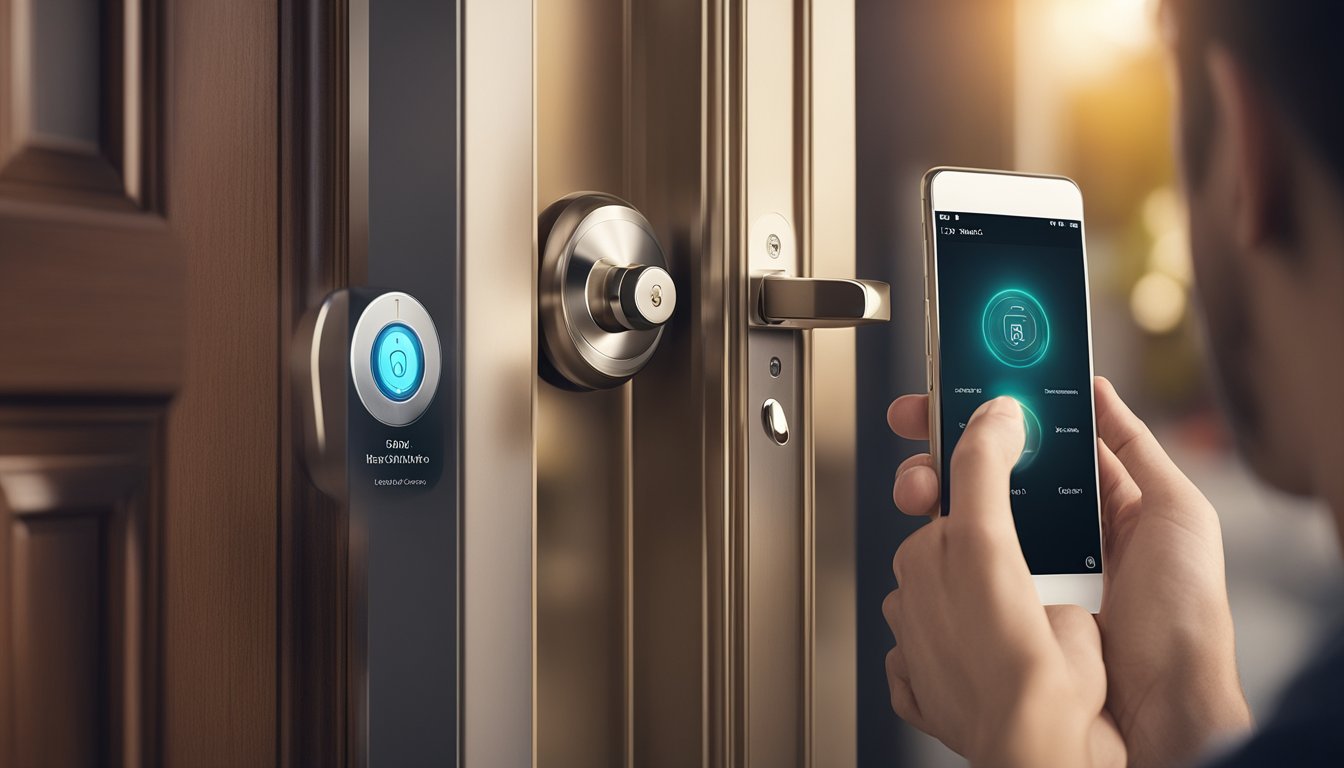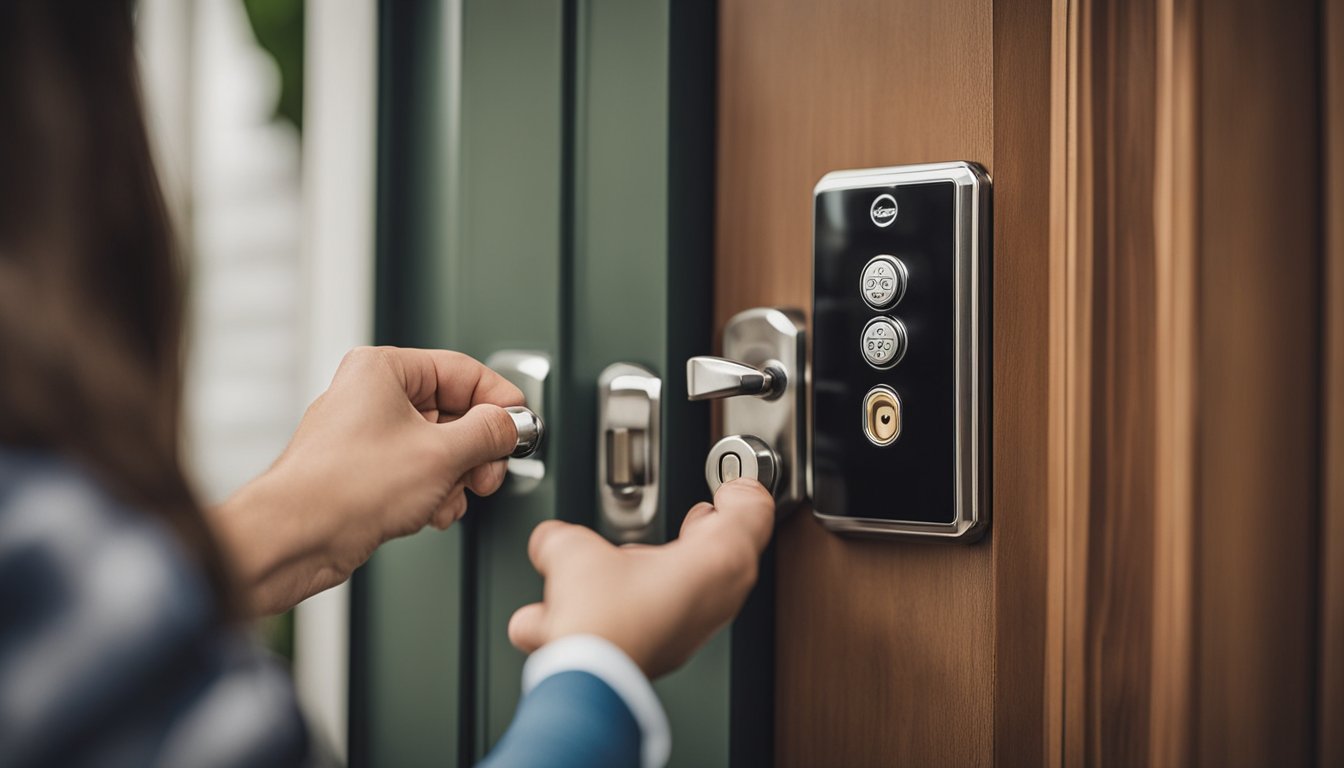Late updated: 13 Oct 2024 09:10
Written by: Elena Prescott
Key Considerations When Upgrading To Smart Locks: A Guide to Enhanced Security
In today's digital age, more homeowners are contemplating the switch to smart locks as an integral part of enhancing home security and convenience. These innovative devices offer a myriad of benefits, from keyless entry to seamless integration with other smart home systems. Opting for a smart lock can significantly streamline access control in your home, offering peace of mind with enhanced security features. With the added ability to control and monitor lock activity from anywhere, smart locks represent a significant upgrade to traditional locks.

While the benefits are enticing, there are crucial factors to consider before making this upgrade. The variety of smart lock features, battery life considerations, and compatibility with your existing home system can impact your choice and experience. Ensuring smooth installation and understanding the maintenance requirements are equally pivotal to a successful transition.
Key Takeaways
- Smart locks enhance security and offer keyless convenience.
- Consider compatibility and features before purchasing.
- Maintenance and installation impact user satisfaction.
Evaluating Smart Lock Features and Benefits

When upgrading to smart locks, it's essential to assess their compatibility with other systems, the security they offer, and the convenience they provide. These factors determine how well a smart lock will integrate into our daily routines and enhance our home security.
Compatibility and Integration
Ensuring that a smart lock is compatible with our existing systems is vital. Many smart locks now offer integration with popular smart home systems like Amazon Alexa, Google Home, and Apple HomeKit. This allows us to control our locks using voice commands or through centralised home automation hubs.
It's advisable to check whether the smart lock supports communication protocols such as Bluetooth, Zigbee, or Wi-Fi. These enable smooth interactions with other smart devices. Moreover, some smart locks offer integration with security cameras or video doorbells, providing an added layer of security by allowing us to see who is at the door before granting access.
Security and Access Control
Security should be a primary focus when assessing smart locks. Many models provide enhanced security features, such as tamper alarms and robust encryption methods to prevent unauthorised access. ANSI/BHMA certification grades help determine the lock's durability and strength against forced entry.
Access control is another crucial aspect. Smart locks allow us to manage access through keyless entry, which can include fingerprint recognition, smartphone apps, or numeric keypads. We can distribute temporary access codes to visitors or service personnel, ensuring that entry can be controlled without compromising security. Furthermore, many smart locks offer audit trails, allowing us to monitor who accessed our home and when.
Convenience and User Experience
The convenience offered by smart locks significantly enhances user experience. Remote access is a notable feature, enabling us to lock or unlock doors from a distance via a smartphone app. This is particularly useful if we need to let in a guest or check if we've locked the door after leaving.
Smart locks provide keyless entry methods, reducing the need to carry physical keys. This can be more convenient and eliminates the chance of us being locked out. Additionally, features like geofencing allow doors to lock or unlock automatically based on our phone's location, adding another layer of ease.
In summary, evaluating these features allows us to choose a smart lock that best fits our security needs and lifestyle preferences.
Installation and Maintenance Considerations
Smart locks offer advanced security features but require careful attention during installation and ongoing maintenance to ensure optimal performance. We'll explore the intricacies of installing these devices, as well as the maintenance required to prolong their lifespan and effectiveness.
Understanding the Installation Process
Installing a smart lock involves several critical steps that must align with your door's specifications. First, check the compatibility of the lock with your door's size and type, as many locks require standard door thickness for proper fitting. It's essential to follow the manufacturer's instructions closely, as precise alignment of components like the mounting plate is crucial.
Some models are designed to be user-friendly, enabling easy installation with basic tools. However, for more complex systems or if integrating with an existing security system, professional installation might be advisable. Cost considerations for professional installation should be evaluated against the potential risks of improper setup.
Ongoing Maintenance and Support
Maintaining a smart lock involves more than just ensuring it mechanically functions. Battery life is a key factor, as these devices require regular monitoring and timely replacement of batteries to avoid malfunctions. Many systems provide alerts via a smartphone app to notify users of low battery levels or other issues.
Additionally, firmware updates are crucial to keep security features up-to-date. Regularly checking for and downloading updates can safeguard the lock's durability and integrity. These updates often patch vulnerabilities and enhance features, contributing to the lock's overall reliability. Ensuring we stay informed of available updates through the device's app or manufacturer’s website ensures our smart lock remains secure.
Frequently Asked Questions

Upgrading to smart locks can be a significant decision for improving home security and convenience. Various factors such as compatibility, privacy concerns, and market offerings should be thoroughly evaluated to ensure optimal choices are made.
What factors should be assessed before installing a smart lock system?
When considering a smart lock system, we should evaluate compatibility with our existing door hardware. Battery life, connectivity options like Wi-Fi or Bluetooth, and ease of use are essential considerations. Evaluating these factors helps us ensure a seamless integration into our home security setup.
Which smart locks are regarded as the best in the market for 2024?
In 2024, the market sees several standout smart locks known for their reliability and advanced features. Brands like August, Yale, and Schlage often dominate consumer recommendations. Each offers unique attributes such as remote access, integration with smart home systems, and robust security protocols.
Are there specific doors that are incompatible with smart locks?
Some door types may pose challenges for smart lock installation. Sliding patio doors, for instance, require specialised locks that fit their design. It's crucial for us to verify the compatibility of our doors with the smart locks we consider to ensure proper function and security.
What potential privacy issues should be considered with the use of smart locks?
Privacy is a significant concern with smart locks, given their connectivity features. Data transmission over networks can be vulnerable to hacking. It's vital for us to choose systems with strong encryption and regularly update firmware to mitigate any security risks associated with smart home devices.
What are the main drawbacks of using digital door locks over traditional locks?
Smart locks, while innovative, have certain drawbacks compared to traditional locks. Dependency on technology means they're susceptible to technical malfunctions or battery failures. Additionally, we might face increased costs both for initial purchase and maintenance compared to conventional locking systems.
How does upgrading to a smart lock affect home security and access control?
Switching to a smart lock system can enhance our home security by allowing us to monitor access remotely. Temporary keys can be granted to visitors, enhancing flexibility. However, ensuring strong encryption and firmware updates is crucial to counter potential cybersecurity threats, maintaining the integrity of our security setup.
